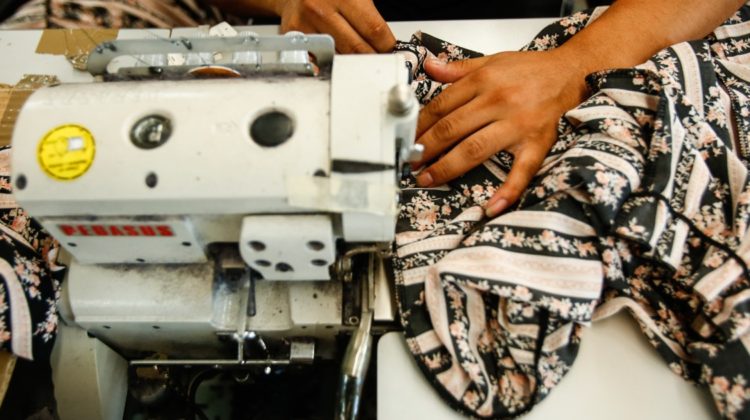

Factory owners in California’s garment industry have gotten away with illegally paying workers below-minimum wages for decades.
A bill that cleared a major hurdle in the Assembly Wednesday aims to change that, requiring apparel factories to pay garment workers an hourly wage and aiming to hold big businesses accountable for labor practices under their watch. SB62 will head back to the state Senate for final approval before going to the governor’s desk for signature.
By requiring an hourly wage, the bill bans the longstanding piece-rate system — 5 cents to sew a side seam, for instance, or 10 cents to sew a neck — that often adds up to less than $6 an hour, according to a 2016 UCLA study, while allowing employers to still offer productivity based incentives to workers.
It would also allow workers to claw back stolen wages from big fashion brands and retailers, instead of having to go after the small garment factories that those larger companies hire as subcontractors to keep costs low, which often shut down and disappear before workers’ can reclaim their due.
Garment workers, labor advocates, and more than 100 fashion businesses that have endorsed the bill say that the change is overdue in an industry where 85% of workers are illegally paid below the minimum wage, according to a federal Department of Labor survey.
“It’s 2021, we’re fighting for workers to earn a minimum wage and holding the people responsible who are making profits off of their low pay,” said Assemblymember Lorena Gonzalez, one of the bill’s principal coauthors, in her closing statements before the vote. “The time has come to ensure that garment workers have basic human dignity.”
A 2017 California law applied similar standards to the construction industry, mandating that workers could seek unpaid wages from a general contractor even if a subcontractor was the one who stiffed them, and last year’s SB 1399 sought to make the same changes for the garment industry before dying in the Assembly.
Many fashion brands and trade groups said that the bill was a step too far, arguing that companies should not be held responsible for working conditions and stolen wages at third-party companies that they hire to make their clothes.
The California Chamber of Commerce put the bill on its “job killer” list, and trade groups say that the change could lead companies to outsource its work to other states or countries with fewer labor protections.
SB 62 would update labor reforms passed in 1999 that made brands liable for wage violations by the contractors that produce their garments. That law was motivated in part by the incident four years earlier in which 72 undocumented Thai immigrants, who were essentially enslaved, were freed in a raid on an El Monte sweatshop complex.
The 1999 law created “proportional liability,” meaning brands are on the hook to pay only the portion of lost wages corresponding to the garments the worker produced for them.
Labor advocates said the increasingly layered use of contractors over the last two decades has made it harder to enforce the law, and that SB 62 provides crucial updates to language that more clearly defines which entities are considered liable and bolsters authorities’ ability to conduct inspections.
SB 62 proposes that fashion brands be held legally responsible for the full amount of harm done to a worker, even if other brands were also responsible in some part for that harm, functionally making them accountable for any work performed within their supply chain.
Once the worker is wholly compensated, fashion labels could negotiate among themselves to ensure each entity pays its corresponding share. To protect their financial interests, brands might begin to require that contracted producers carry bonds or insurance to cover any wage claims.
